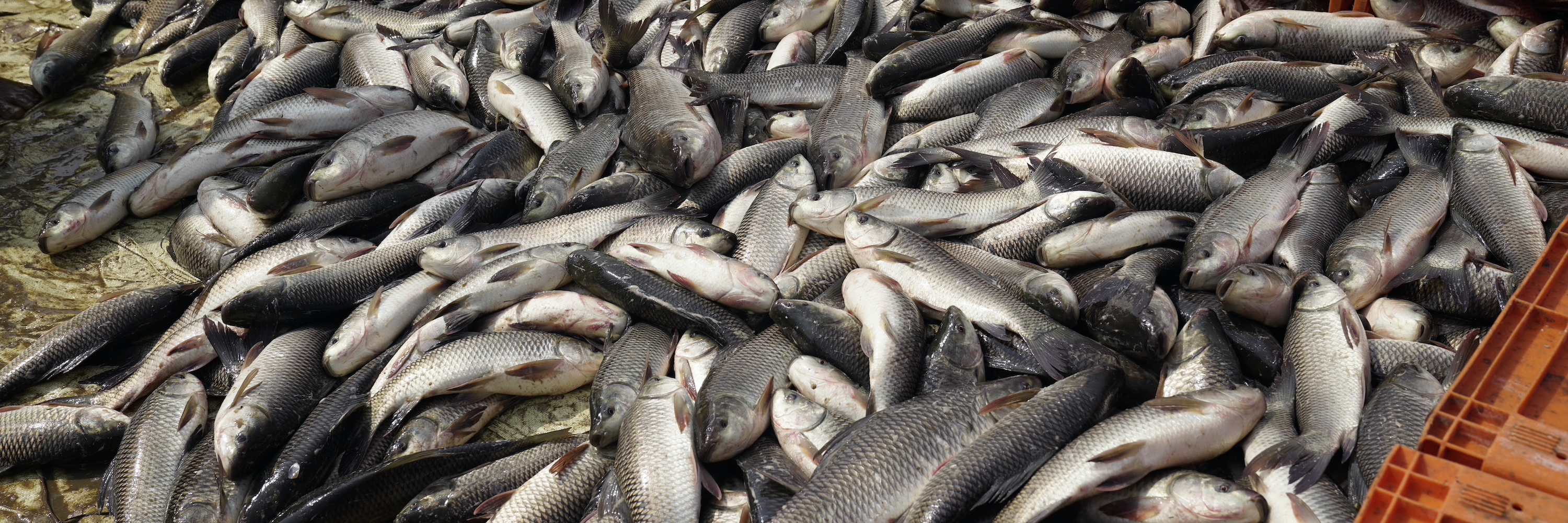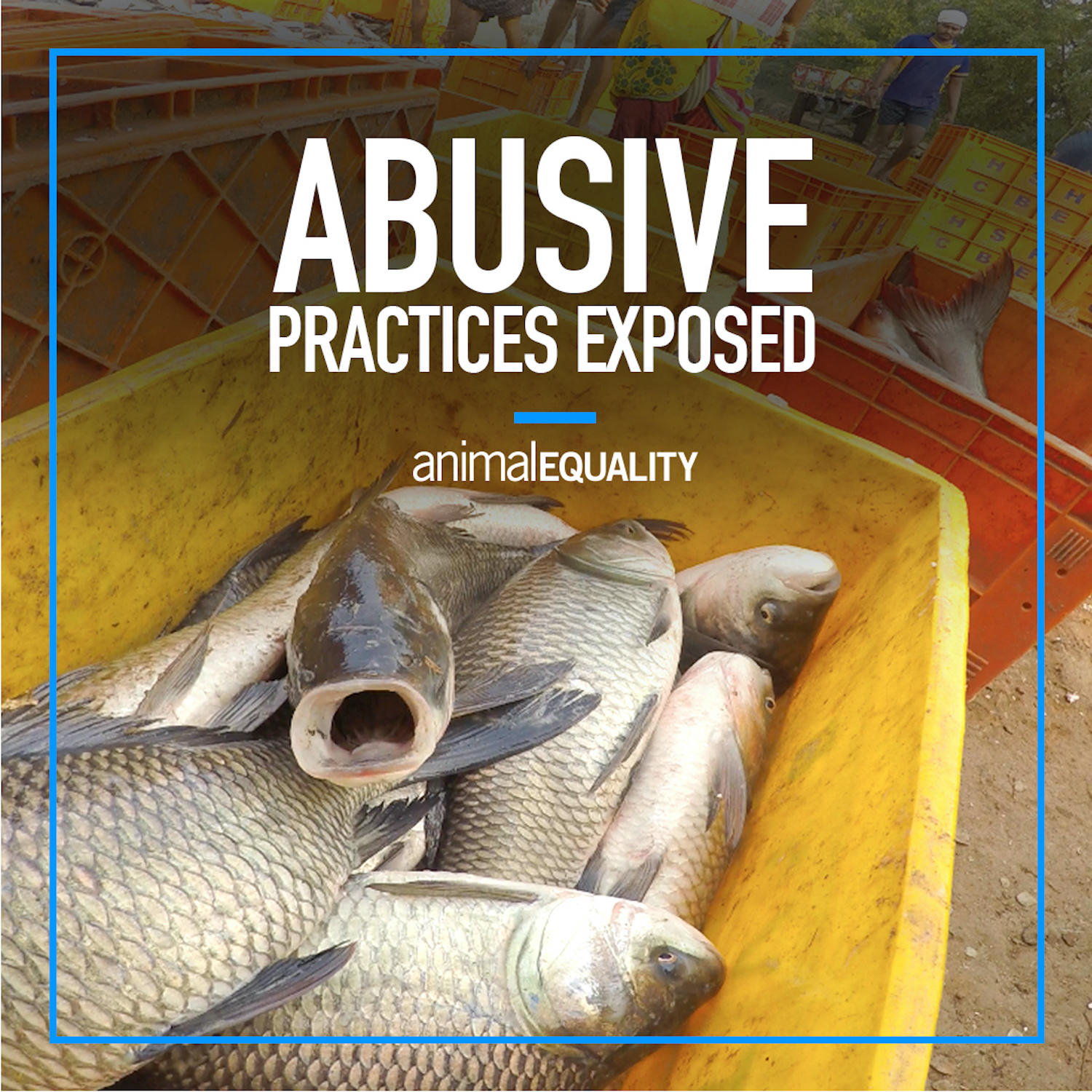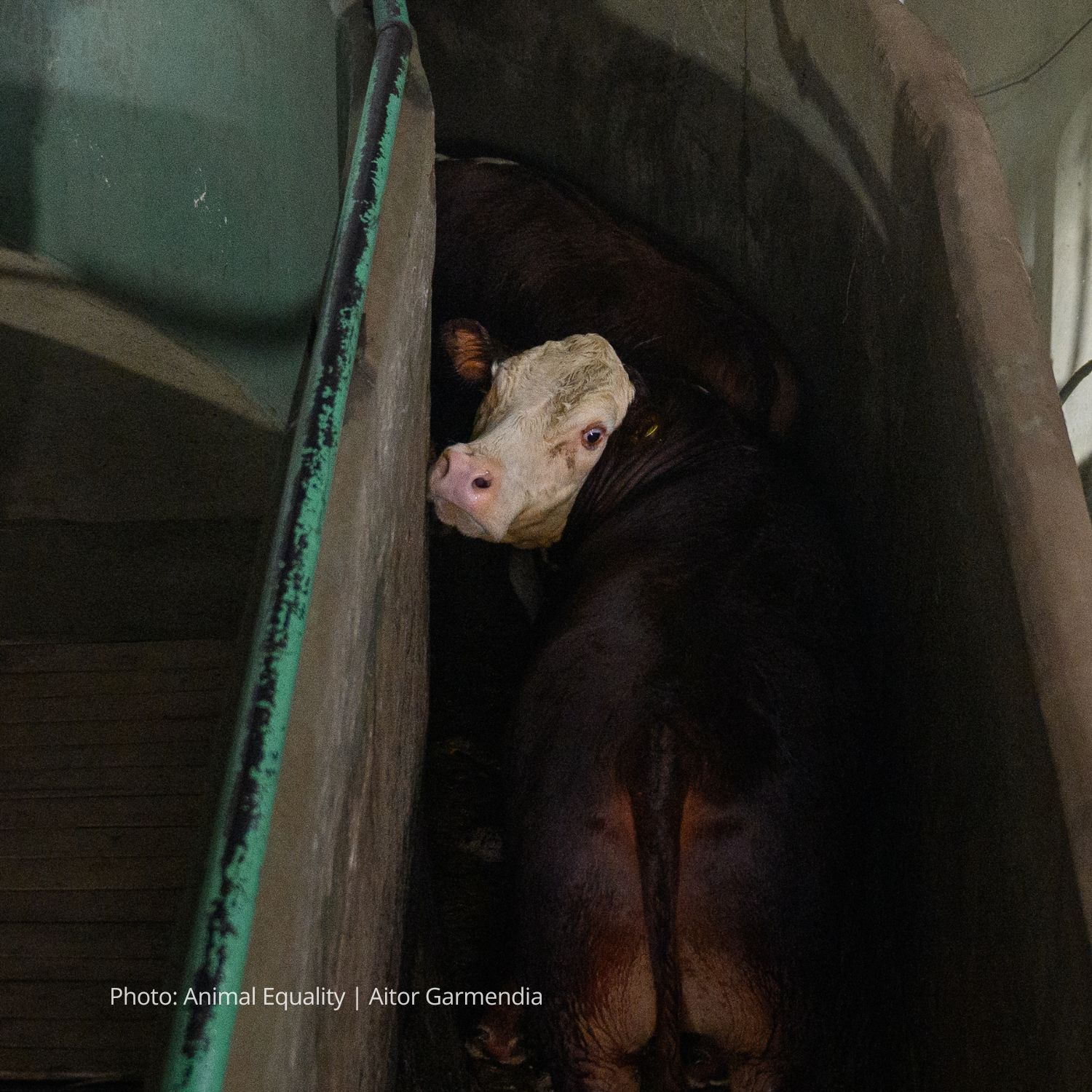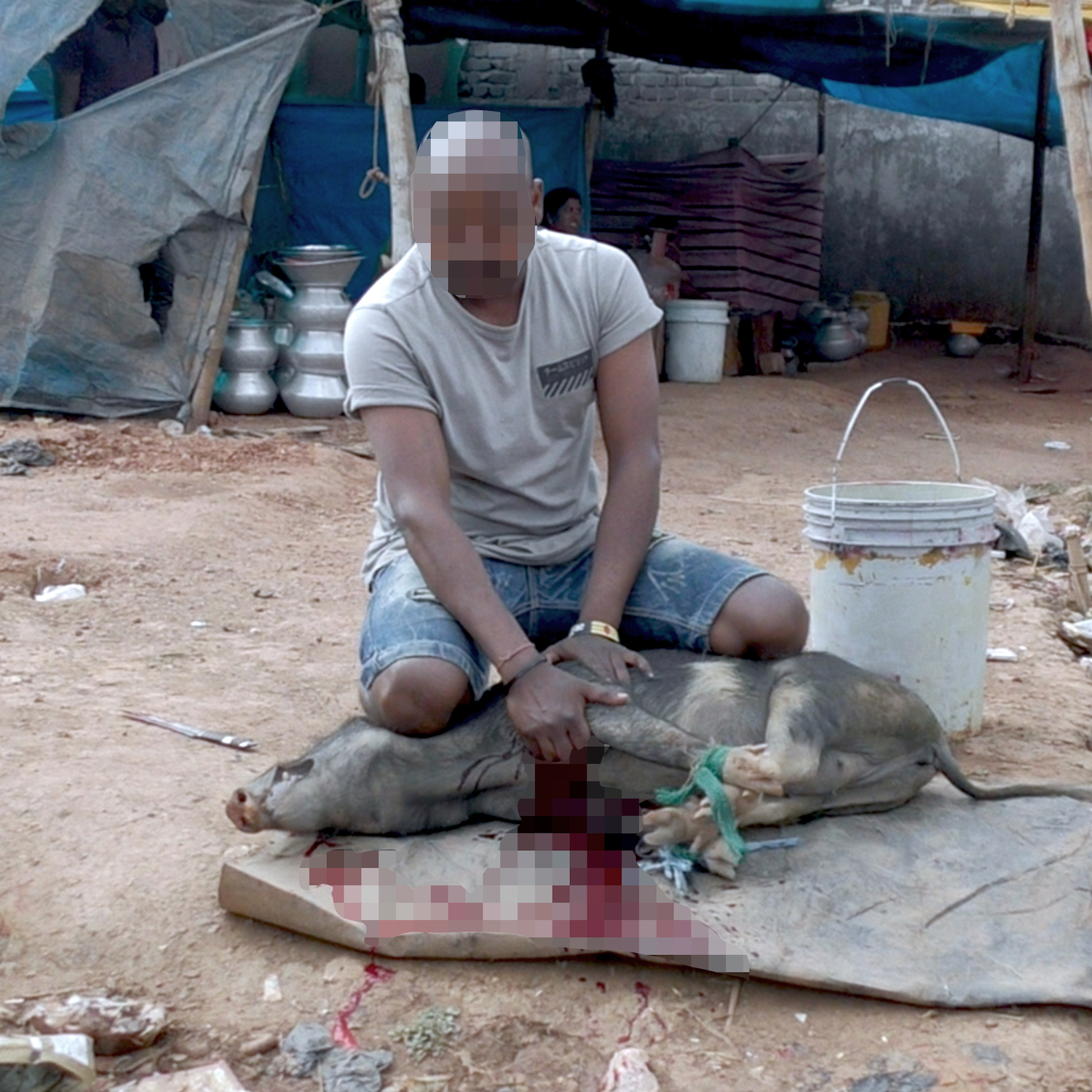INVESTIGATION: Complete lax of fish welfare standards across India


THE DETAILS: Animal Equality investigated several fish and shrimp farms, hatcheries and fish markets from Feb 2019 to May 2020 in West Bengal, Andhra Pradesh, Tamil Nadu and Telangana, which are known for their fish production.
- The cycle of cruelty begins with a process called, ‘Fish Milking’ in which the eggs from a female fish are squeezed out by hand.
- Thousands of fish are bred in small ponds – overcrowded and prone to diseases.
- Many of the fish are crushed to death by the weight of other fish when they are caught in nets and dumped into containers.
- Fish that reach the market are sold in very unhygienic conditions.
- The traditional method for killing farmed fish is to asphyxiate them by leaving them out of the water or on ice, leading to a slow and agonising death.
- Their gills are cut without prior stunning, resulting in them bleeding to death.
- Some species of fish like catfish are kept alive and slaughtered at the market.
- Conscious catfish were violently clubbed several times in order to slaughter them.
- Fish production also violates human rights. Children were seen slaughtering fish.
- Fish farms adopt water-intensive practices for sustenance and pump out large quantities of groundwater which comes from rivers leading to drastic reductions of the water table in the region.
- Fishery and aquaculture farms require large tracts of land in areas with an abundance of water reducing the agricultural yield from these areas.
WHAT HAPPENS NEXT: Animal Equality has presented these findings to the Government of India along with a list of recommendations to reduce the suffering of fish. Amruta Ubale, Senior Director of Public Affairs says, “The objective of Prevention of Cruelty to Animals Act, 1960 is to prevent the infliction of unnecessary pain or suffering on animals and Article 48 of the constitution states that animal husbandry should be organised on modern and scientific lines. The government must consider our recommendations as they are in line with the PCA Act and the constitution.” In addition, a petition was launched which people can sign urging the Minister of Animal Husbandry, Dairying and Fisheries to consider these recommendations.
WHAT YOU CAN DO: The reality is that animals are not afforded adequate protection in our food system and the abuse we filmed is unfortunately commonplace in the fishery and aquaculture industry. If these conditions concern you, the best way you can help is to leave animals off your plate and sign and share our petition with your family and friends. We can make a difference, together. We just need more people to learn about what really happens within animal agriculture.
SIGN OUR PETITION URGING THE GOVERNMENT TO TAKE ACTION



